
Photo Credit: Getty Images.
While some mold builders have already filed their 2020 tax returns, some have not. The IRS extended the 2020 tax return filing season for individuals to May 17, 2021, but some businesses and their owners filed extensions, giving themselves until September or October to file their tax returns for the calendar year 2020.
While both companies and individuals can amend their federal income tax returns, many elections and changes must be made or claimed on the originally filed tax return up to three years from the date the original return was filed.
Mold builders filing for automatic changes in accounting method must file Form 3115 with their initially filed tax return, including extensions. Many shops have filed for these automatic accounting method changes since the Tax Cuts and Jobs Act of 2017. For example, mold shops under $26 million in sales are eligible to be on the cash method of accounting. They may exclude the overhead cost from their inventory, deferring the income tax liabilities until the following tax year.
Another example is rules about elections on the initially filed income tax returns to validate the election. For example, mold shops wishing to make the de minimus election under the repair or maintenance expenditure regulations, or claim the reduced R&D tax credit, must elect to do so on an originally filed tax return, including extensions.
Mold builders wishing to make these elections or accounting method changes who have already filed their income tax return for the tax year 2020 may still be able to avail themselves of these opportunities if they filed an extension in a timely manner.
Mold builders wishing to make these elections or accounting method changes who have already filed their income tax return for the tax year 2020 may still be able to avail themselves of these opportunities if they filed an extension in a timely manner. If a mold shop extended its tax return but already filed the return, the shop may file a superseding tax return, as long as it is marked as such and filed by the extended due date. Mold shops that did not extend their tax return and have already filed their 2020 return must wait until the 2021 tax year to make these changes or elections.
Tax Legislation Improves the ERC
Many mold builders are reconsidering certain federal benefits they had previously ruled out after a series of rule changes and expansions to various COVID-19 relief programs. Employee retention credit (ERC) is a prime example.
The initial intent of the ERC was to help businesses keep employees on the payroll if they were forced to close or partially suspend operations due to a mandatory government shutdown order or if they experienced significant revenue loss during the pandemic. While the basic structure and purpose of the program remain unchanged, both the eligibility criteria and the size of potential benefits have changed significantly.
Given these revisions, shops that were previously ineligible or uninterested in the ERC may want to take another look.
Expanded Eligibility
When the ERC was first enacted in March 2020, businesses that received a loan under the Paycheck Protection Program (PPP) were prohibited from claiming the credit. Because of this restriction, many mold shops chose to apply for more significant, forgivable PPP loans rather than claim the ERC.
But in December 2020, the Consolidated Appropriations Act of 2021 (CAA) removed the PPP restriction. Companies that received PPP loans are now eligible to claim the ERC retroactively to March 2020, although they cannot use the same wages to qualify for both programs. The CAA also extended the ERC's expiration date to June 30, 2021, making it easier for companies to qualify for this credit.
Because it is both refundable and advanceable, the employee retention credit can be a valuable source of additional funds to help with cash flow.
For example, at the program’s outset, companies that were not subject to a government shutdown order could claim the credit only if their 2020 quarterly gross receipts declined by more than 50% compared to the same quarter in 2019. Now, companies may qualify if their 2021 quarterly gross receipts declined by only 20% from the corresponding quarter in 2019.
Increased Benefits
The potential size of the credit has also increased significantly. Initially, eligible companies could claim a credit equal to 50% of their paid employees’ qualified wages between March 13, 2020, and December 31, 2020. The maximum qualified wages were capped at $10,000 per employee, resulting in a maximum credit of $5,000 per employee for all of 2020.
For qualifying companies in 2021, the CAA increased maximum qualified wages from $10,000 per employee, per year, to $10,000 per employee per quarter. It also increased the credit amount from 50% of qualified wages to 70%.
Then, on March 11, 2021, President Biden signed the American Rescue Plan Act (ARPA), extending the program through the rest of 2021. As a result of these combined changes, the maximum potential credit could now amount to $7,000 per eligible employee for each quarter of 2021—for a maximum of $28,000 per eligible employee per year.
The CAA increased that threshold to 500 employees, making more significant credits available to many more tool shops.
For many businesses, the number of qualified employees has also increased. Initially, companies with 100 or fewer full-time employees could count all employee wages to qualify for the ERC. Still, companies with more than 100 full-time employees could claim the credit only for those not providing services but were still being paid. The CAA increased that threshold to 500 employees, making more significant credits available to many more tool shops.
Unlike a PPP loan, there is no separate application or approval process involved in claiming the ERC. A qualifying employer claims the credit on his/her quarterly employment tax return, which the IRS modified last year to accommodate. If the credit amount exceeds the payroll taxes due, the excess will be refunded to the company. However, credits for 2020 must be claimed on an amended payroll return and the IRS is taking longer than usual to process these returns.
There are limitations and additional qualification criteria, but with increased benefits and broader eligibility, companies that had previously ruled out the ERC could now find it merits a second look. Because it is both refundable and advanceable, the ERC can be a valuable source of additional funds to help with cash flow.
Related Content
How to Improve Your Current Efficiency Rate
An alternative approach to taking on more EDM-intensive work when technology and personnel investment is not an option.
Read MoreMaking Quick and Easy Kaizen Work for Your Shop
Within each person is unlimited creative potential to improve shop operations.
Read MoreTackling a Mold Designer Shortage
Survey findings reveal a shortage of skilled mold designers and engineers in the moldmaking community, calling for intervention through educational programs and exploration of training alternatives while seeking input from those who have addressed the issue successfully.
Read MoreSteps for Determining Better Mold Prices
Improving your mold pricing requires a deeper understanding of your business.
Read MoreRead Next
How Tax Reform Impacts the Accounting Methods of Mold Shops
The Tax Cuts and Jobs Act of 2017 code may broaden the accounting methods available to mold builders with average annual gross receipts of less than $25 million for the prior three tax years.
Read MoreTax Relief to Help Manage the Impact of COVID-19
U.S. Congress and Treasury have provided relief to mold shops since the beginning of the coronavirus via accelerated deductions, new tax credits, guidance around these benefits and extensions on the time to file and pay taxes.
Read MoreFraud Risk Management Strategies for Mold Shops
Mold builders must understand fraud so they can reduce the risk and improve profitability and efficiency.
Read More

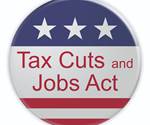







.png;maxWidth=300;quality=90)

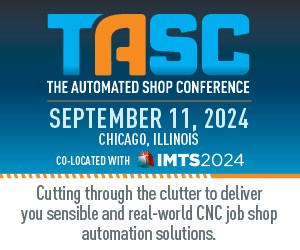




_300x250 3.png;maxWidth=300;quality=90)





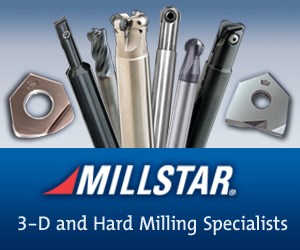



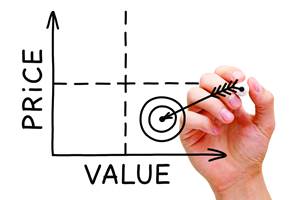
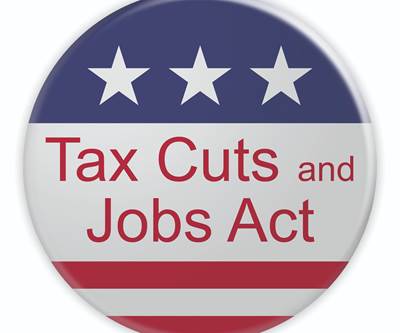


_970x250 1.png;maxWidth=970;quality=90)